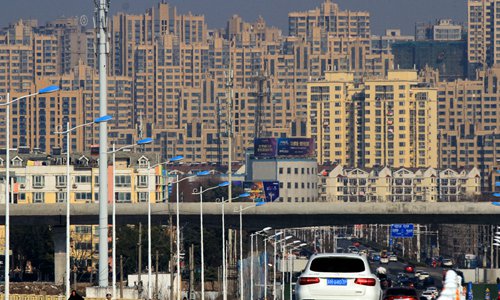Houses account for about 70 pct of Chinese households' assets, putting pressure on consumption stimulation
By Dong Dengxin Source:Globaltimes.cn Published: 2020/4/29 1:40:03

File photo: VCG
Chinese urban households prefer risk-free assets and houses account for about 70 percent. Real estate in China is a preferable way for residents to maintain the value of their assets under a prudent and stable policy environment, but it would also put pressure on consumption stimulation in the post-pandemic phase.
The average asset value of a Chinese urban household is 3.18 million yuan ($449,300). Most households' assets were physical and nearly 70 percent were houses, according to a report by Chinese financial news site stcn.com, citing data from a survey by China's central bank in October 2019.
With limited financial investment choices and a relatively prudent real estate policy environment, Chinese residents choose to buy houses not only to live in, but also as investments in a bid to maintain the value of their assets.
It is a family investment pattern with a Chinese characteristic.
However, this unique investment pattern could also put pressure on consumption stimulation in post-pandemic phases, as people would tend to save more to pay off mortgages.
Against the backdrop of the pandemic and the resulting global economic contraction, a prudent monetary policy is critical to maintain the value of residents' assets, avoid over-investment in real estate and boost consumption confidence.
But the fallout of the virus would not impact Chinese families much in regard to their current home investments as Chinese people tend to maintain a relatively high savings rate with home loans being the only debt for most Chinese households.
A short-term income reduction would not instantly cause mortgage loan defaults, and people are confident about making payments as the Chinese housing market is still stable without the risk of a sudden price slump. By contrast, US residents tend to save less which generates higher risks when they lose jobs or encounter income reductions amid the coronavirus pandemic.
On the other hand, Chinese urban households are being encouraged to expand their investment portfolios to diversify risks, and to carry out more medium or long-term investments instead of focusing on short-term speculation.
The author is director of the Finance and Securities Institute at Wuhan University of Science and Technology. bizopinion@globaltimes.com.cn
Posted in: EXPERT ASSESSMENT